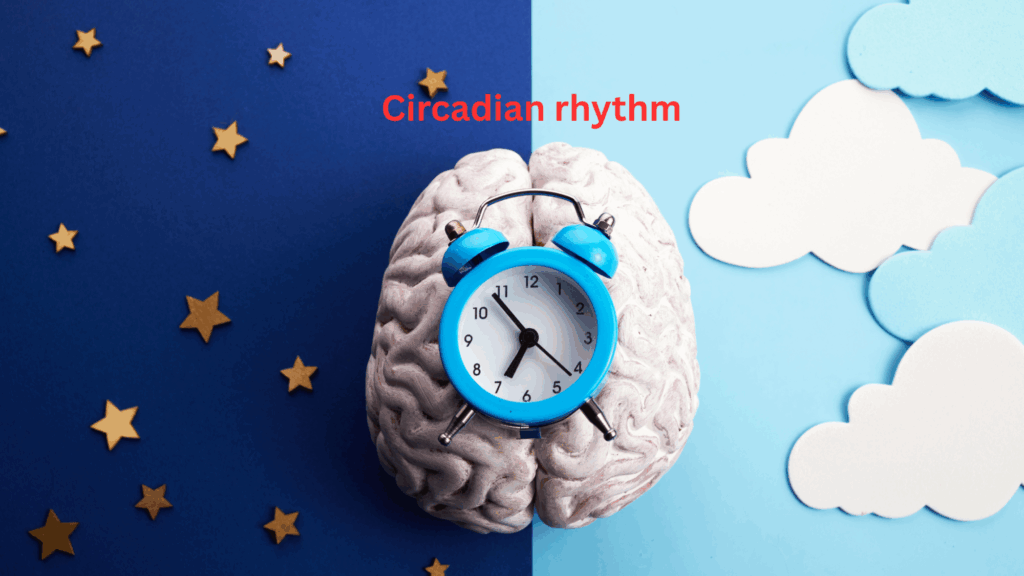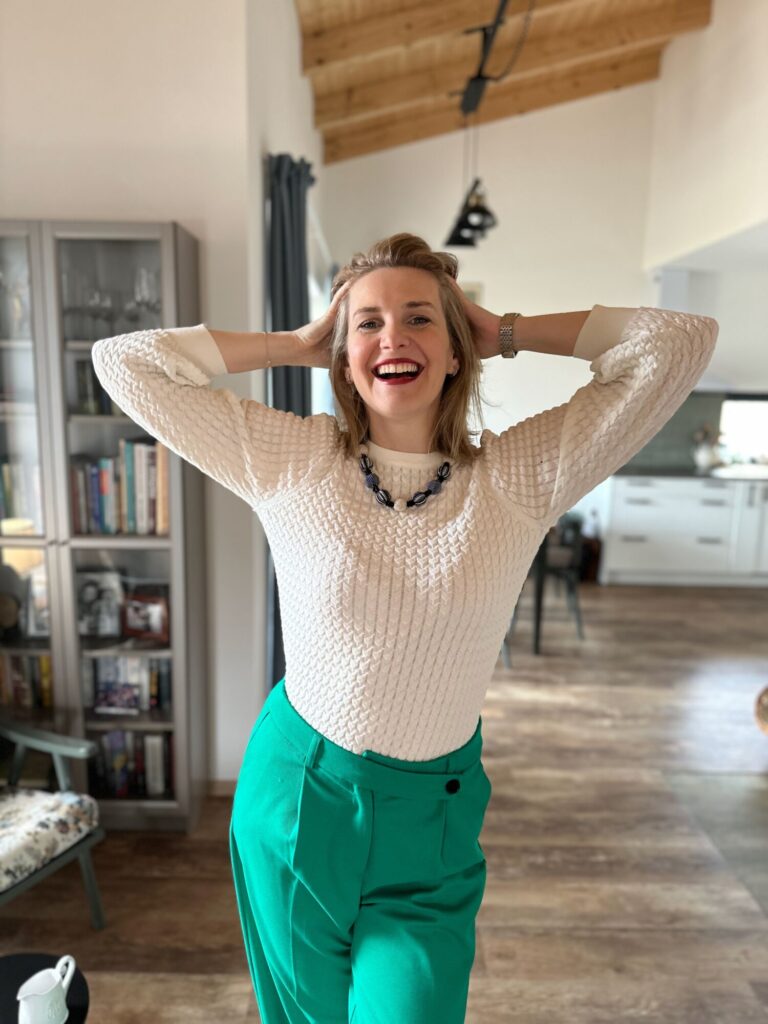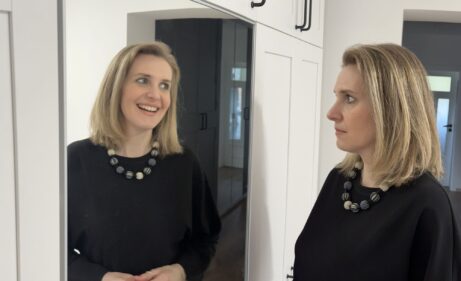The Circadian Rhythm & Personal Growth – Why They’re Inseparable

When Your Inner Clock Runs the Show
Maybe you’ve been on the personal development path for a while – you’ve read dozens books, listened hundreds of podcasts. Maybe you have a demanding job where you’re constantly juggling expectations, deadlines, and the need to stay sharp. Maybe you’ve tried to lose weight, only to dance with the yo-yo effect. Or maybe you’re a high-performer who wakes up ready to conquer the day and goes to bed thinking, Tomorrow, I’ll do even more .
But here’s the truth: even the most perfectly crafted plan will crash if it runs against your body’s natural clock.
The luxuries of the 21st century do us no favours here. Constant screen time (especially right after waking up or – worse – just before bed), food available 24/7, caffeine on tap, energy drinks, and “quick fix” pills… and we wonder why we’re tired, stressed, running on fumes and getting anxious.
My First Encounter with the Circadian Code
Over a year ago, I came across a book: The Circadian Code by Satchin Panda, PhD after randomly listening to a podcast (and as we know, “random” isn’t really random).
Until then, I had no idea how much my internal rhythm was influencing my energy, focus, mood, and overall wellbeing. I love to say, everything is connected – and simplicity is powerful. Respecting your body’s internal clock impacts how you feel, how you sleep, and how you show up mentally, physically, and emotionally.
What Is the Circadian Rhythm – and Why It Matters
Your circadian rhythm is your body’s built-in 24-hour cycle. It controls countless processes – from sleep and hormones to body temperature and digestion. When it’s in sync, it’s like your body’s operating system runs smoothly. When it’s out of sync, no amount of workouts, meditations, affirmations, or supplements will get you the results you want.

Structure = Calm
To get the most from your nourishment, workouts, learning, rest, and relaxation, your body needs structure.
If you hate routine… sorry to disappoint you – your body loves it. It needs the right conditions to function at its best.
Sleep
- Go to bed and wake up at the same time every day (give or take 30 min – weekends included)
- Keep your room dark and slightly cool if possible
- Aim for a bedtime around 10 p.m. – the most restorative sleep happens between 10 p.m. and 2 a.m., and you can’t “make it up” later
- Create a calming evening ritual – reading (with warm light), meditation, visualization, or a short gratitude practice
Light
The quality of your sleep tonight starts already in the morning.
- Morning: Get natural light as soon as possible after waking – it triggers cortisol release and tells your body the day has begun
- Evening: Dim the lights so your body can produce melatonin
Ideally, ditch blue light at least two hours before bed time (phone, laptop, TV). If that’s not realistic, use blue-light-blocking glasses or a screen filter. Also, check your bulbs – warm lighting in the evening is your friend.

Eating Made Simple
Your first bite of the day sets your “organ clock.”
- Eat at consistent times, eat REAL FOOD, eliminate processed food as much as posssible
- Skip all-day grazing
- Try Time-Restricted Eating (TRE), e.g. 14/10 – 14 hours fasting, 10 hours eating
For me, that means dinner at 6:30 p.m., breakfast around 8:30 a.m. If weight loss is your goal, try narrowing your eating window to 8 hours.
In the evening, avoid heavy meals, alcohol, and caffeine. Have your wine with dinner, not later – your sleep and digestion will thank you.
Move at the Right Time
The best time to move? Morning- ideally before breakfast – and again in the late afternoon.
Dog owners have it quite easy here – built-in morning walk with sunlight and a stretch. Cat owners (like me) need a different plan. What’s working for me is a 10 minutes of strength training and a 20-minute walk when my schedule allows.
When Your Brain Is at Its Sharpest
Science says our brain power peaks between 10 a.m. and 3 p.m., with a sweet spot between 10 a.m. and noon.
Perfect for deep work, decision-making, and tackling complex challenges. Personally, I’m the most efficient before lunch – afterwards, my energy starts to slide.
My Year Living by My Circadian Rhythm
I’ve been living in sync with my body’s clock for over a year now. The results? Better sleep, more energy, lost weight, nearly none late-night wine cravings (and snacks). I could feel the difference already after 1 week of following my biological clock.

If you want to dive deeper into the science, I highly recommend The Circadian Code by Satching Panda. It even covers how following your rhythm can help you with cronical dieseases, touching also shift work, jet lag, and how parents of young children can adapt (a whole different challenge). It’s brining even very interesting insight about which part of the day is suitable for surgeries, taking into account circadian rhythm.
Your Inner Clock Is in Your Hands
Your circadian rhythm is yours to own – and you’re the one holding the controls.
A few simple shifts – morning light, evening darkness, consistent sleep, and a smart eating window – can change how you feel, think, and live.
I know some of these steps might feel almost impossible at first. That’s normal – change often comes wrapped in discomfort. But repetition is the mother of mastery, and even starting with just one small shift can create positive impact. Each choice you make in alignment with your body is a step towards more energy, clarity, and balance – and there’s quite a lot at stake.
And here’s the thing – once you understand how your body works, you can use it to work smarter. If your role allows, block your calendar in the late morning for strategic thinking and high-stakes decisions, when your brain is naturally at its sharpest. Save 1:1 meetings, admin work or lighter tasks for the afternoon, when focus tends to dip.
Of course, there are people who feel they learn best at night – and that’s fine too. Just remember that evening productivity has to be weighed against the value of high-quality sleep.
So, will you let your inner clock set the rhythm of your day – not just in life, but in your work, too?
My Life and Work in the Same Rhythm
For me, this isn’t theory from a book – it’s how I live.
As a transformational coach, I share what I live. I’ve seen how small daily adjustments can significantly influence your life – not just in health, but in careers, relationships, and personal growth. If you feel ready to move from knowing what’s good for you to actually living it, I’d love to guide you through that change
👉 Book your free online coaching session and let’s design a life that fuels you – in every sense.







